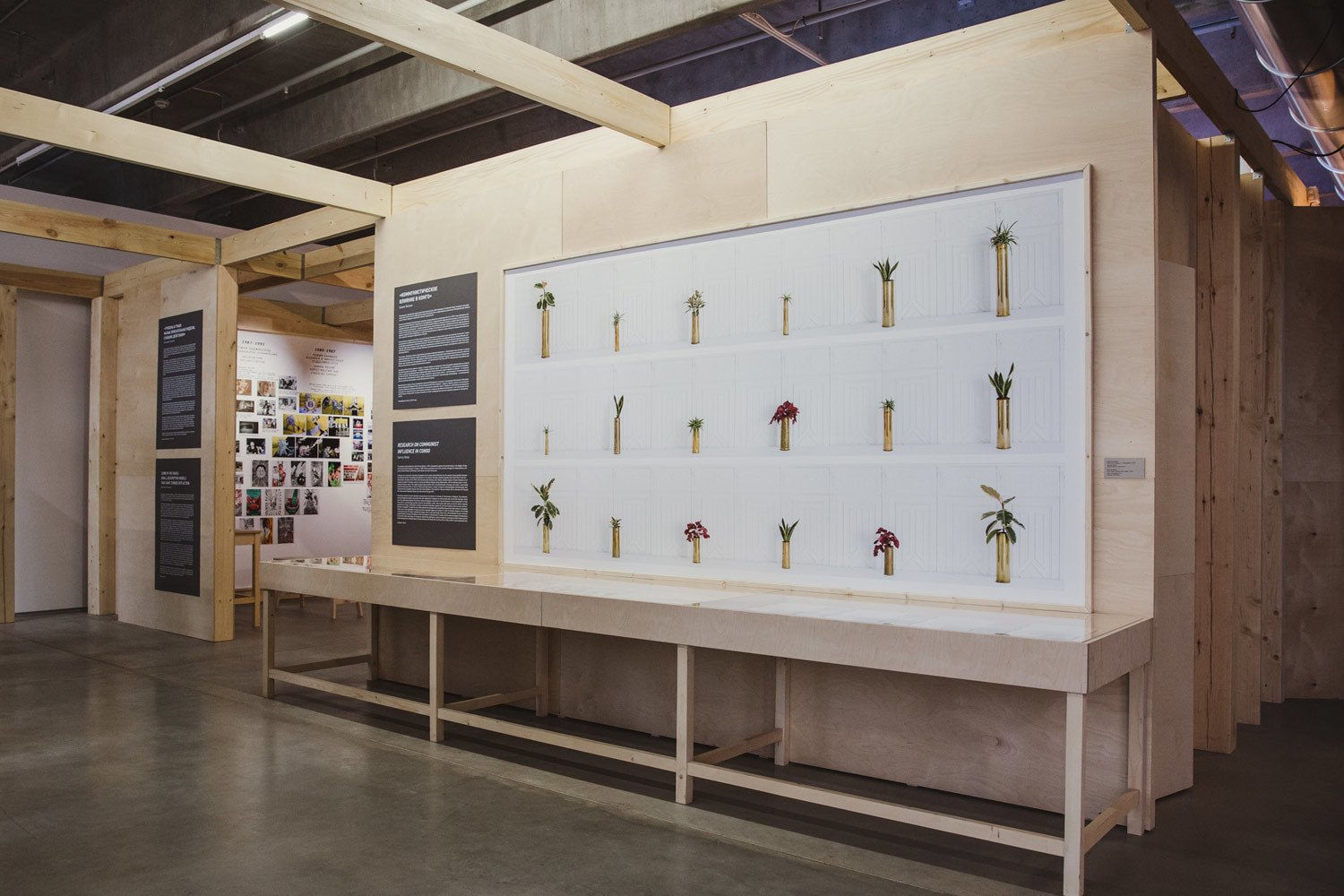Research on the Soviet influence in Congo
The research project initiated by artist Sammy Baloji (b. 1978, Lubumbashi) explores the transformation of the Belgian Congo into the Democratic Republic of Congo in 1964, Patrice Lumumba’s role in the country’s struggle for independence, and Joseph-Désiré Mobutu’s dictatorship, which lasted more than thirty years.
Looking at how communism influenced Congolese art and culture during Mobutu’s rule, the research draws parallels between two historical periods: the political perturbations in the eastern European socialist republics after World War II and the Zairianization movement of the 1970s, which became state ideology under Mobutu. Baloji’s analysis of Soviet influence is not reduced to politics: it includes a study of cultural and lifestyle changes during Zairianization, with its ambitious goal to revive traditional African culture. The research project spans several cities, including Brussels, Kinshasa, and Lisbon, where Baloji visited the National Archive of Torre do Tombo and interviewed a number of experts, including Belgian anthropologist Jean Omasombo and Congolese historian and writer Kivilu Sabakinu. The research in Moscow started with an interview with Russian film cinema expert Alexander Markov and will continue through 2018.
Here Baloji presents archival materials he discovered at the Center of Archives of Communism in Belgium. The materials include propaganda leaflets and posters that were distributed in Belgium by youth groups with communist leanings, which show the relationship between the former colony and Belgian communists.
A second element in the presentation is Frise Obus (2016), a photocollage specially made for the exhibition, which uses copper shell cases as pots for plants originally exported from Congo: chlorophytum comosum, sansevieria trifasciata, begonia rex, and ficus elastica, which are now common European houseplants.

Sammi Baloji.
Frise Obus (Frieze with Shells), 2016
Color photographic print
Courtesy of the artist
Through this work, Baloji explores the ecological and sociopolitical issues that remain central to Congolese history such as the exploitation of natural resources, especially copper and uranium, in order to produce weapons, from bullets to the atomic bomb. For Baloji, materials like copper, which is still used locally, draw a link in time between the pre- and postcolonial histories of Congo, reminding us of the cruel nature of colonial policy in Congo and the severe ecological consequences for the entire world even today. As congruent material that attempts to unite the research conducted outside Russia and the further development of Baloji’s thesis of Soviet influence, the Soviet film The Proud Son of Africa (1961) is also presented here.
Initiated in 2016.
